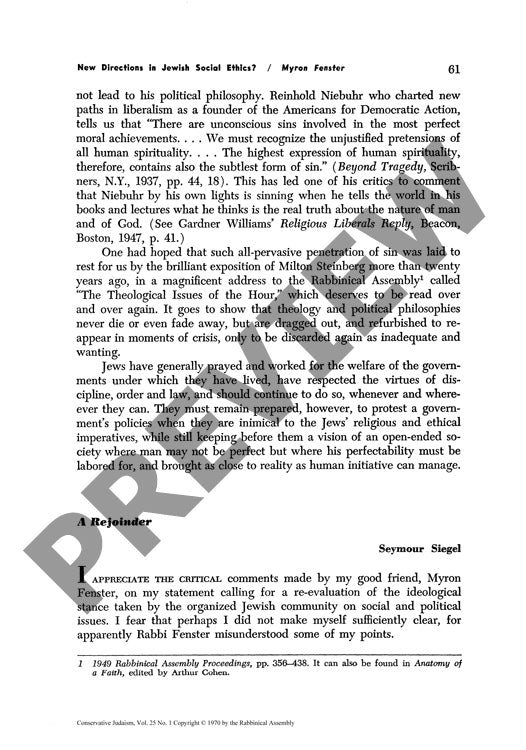What Direction Jewish Social Ethics a Re
Couldn't load pickup availability
The deep ideological divide over how Jewish communities should engage in social activism raises fundamental questions about religious ethics and political reform. Through a critical dialogue between Myron Fenster and Seymour Siegel, competing visions emerge for Jewish social and political engagement in modern society. Drawing on Christian realist thought, particularly Reinhold Niebuhr's analysis of human fallibility and utopian dangers, Siegel makes a case for conservative approaches to social change. While acknowledging liberal idealism's noble intentions, he demonstrates how it can produce counterproductive outcomes, from campus unrest to educational dysfunction. The analysis, grounded in theological and philosophical examination, reveals that meaningful social reform demands rational, constitutional methods rather than abstract ideological frameworks that disregard practical realities. Historical evidence from twentieth-century catastrophes underscores the perils of utopian thinking, even as conservatives maintain support for necessary social progress through methodical, constitutionally-sound processes. Jewish social ethics, the findings suggest, must chart a middle path - one that advances social justice while preserving institutional stability, reasoned debate, and democratic governance, avoiding both passive acceptance of injustice and destructive radical utopianism.

More Information
-
Physical Description
-
Publication Information
Published 1970
ISBN
-
Publication Credits
Seymour Siegel

